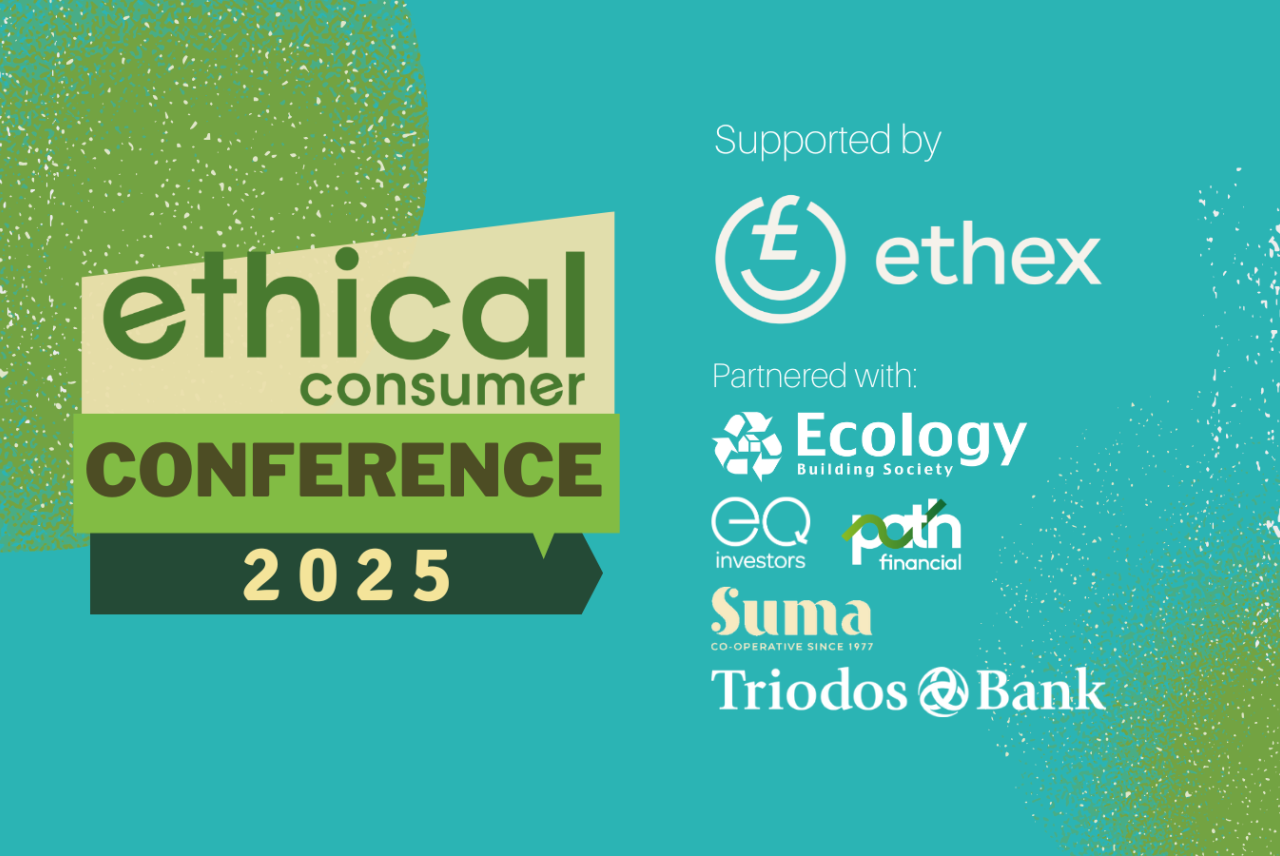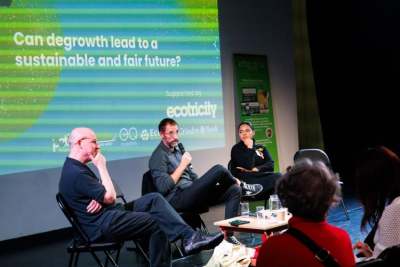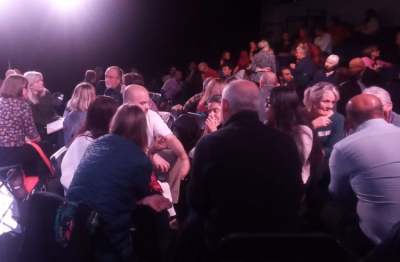2025 Ethical Consumer conference
In early 2025 we saw the growing tech oligarchy stand shoulder to shoulder with US President Trump at the start of his second term. Since then there has been a global ground swell of resistance against corporations, with boycotts reaching a popularity which hasn’t been seen since the movement against Apartheid South Africa.
In the UK, corporations continue to pollute our water and our air, while our bills continue to rise. There is a growing hunger for something different, here and globally.
For our 2025 conference, we will be bringing together ethical organisations pioneering alternative business models, alongside engaged individuals, campaign groups and activists pushing for a fundamental change in how we think about companies.
Theme for 2025: How can we move beyond corporate power?
We will explore if re-inventing corporations can help us build a fairer and more sustainable future.



